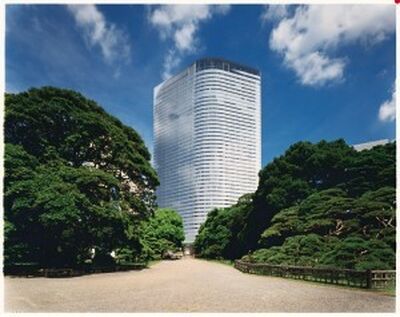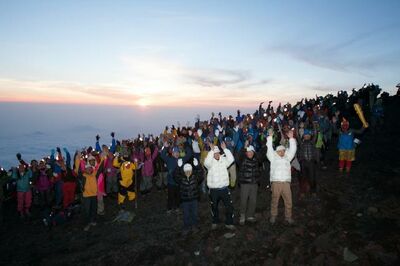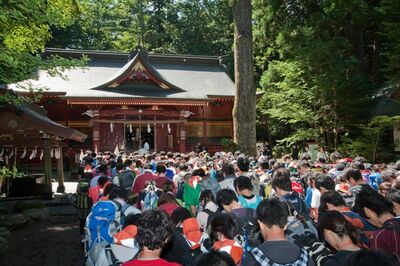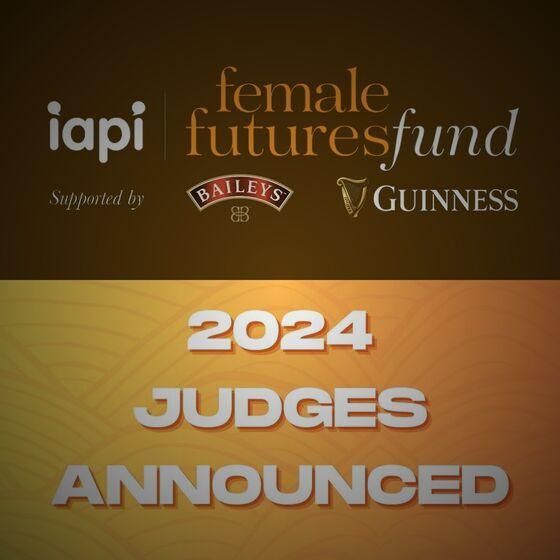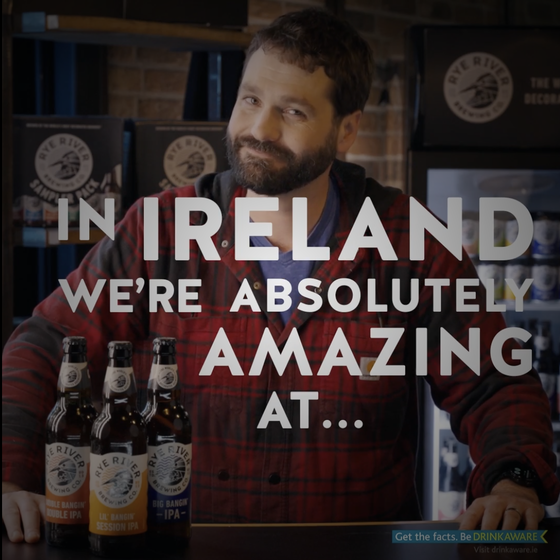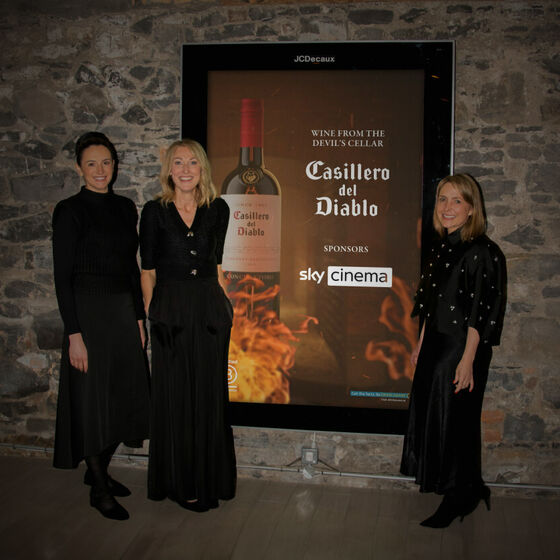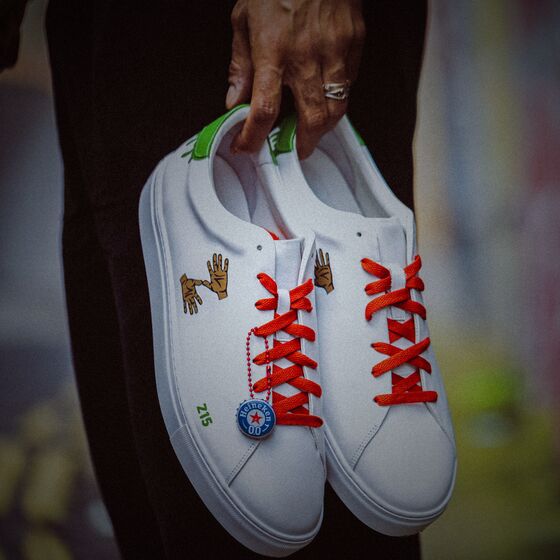Having lived in Japan for seven years and worked in Dentsu owned agencies in London for a good few years, I certainly wasn’t a complete stranger to Japan or Japanese working culture when I was given the opportunity to transfer to Dentsu HQ from mcgarrybowen London back in May 2015. I had also visited the rather impressive Mothership building on business many times over the years, but I don’t think I could ever have been fully prepared for the experience of working (as the only Irish woman in the building!) full time here in Dentsu Inc. HQ.
It’s really been an amazing experience so far and a continuous learning curve, however here are some of the main differences in agency life in Japan I’ve found most surprising.
Dentsu is big. It’s the largest advertising agency in Japan by far and the fifth largest network in the world. The Shiodome HQ building is huge with Dentsu occupying 45 of the 48 floors. There are more than 70 shuttle elevators and approximately 6,000 Dentsu employees (including around 1,000 creatives) working here. The fact that there are more people working in this building every day than there were in the medium sized Irish town I grew up in, still astounds me. It takes me about 5 minutes (and one lift change) to get to my desk in the morning, along with the many other employees rushing to get in through the flapper gate before the 9.30am bell rings, with several uniformed security guards greeting us all good morning. It’s a world away from strolling in to mcgarrybowen London with my morning latte sometime around 9 every morning and can sometimes still feel a bit surreal.
Within the company building and its annex Carretta Shiodome there’s the Advertising Museum Tokyo, a theatre, shops and restaurants open to the public. We also have a clinic for Dentsu employees. I can see a doctor, get my prescription and be back at my desk within 20 minutes – having a clinic within the office building still kind of blows my mind!
In terms of the working environment, mcgarrybowen London is a creative agency, with about 80 employees all working closely together in a very relaxed and informal environment. The office surroundings in Dentsu are a lot more formal and it definitely took a while to get used to the lack of music and chatter around me. That’s not to say my colleagues are unfriendly – it’s just that most of the ‘banter’ tends to take place over a few drinks outside of the office!
Another difference that I’ve found fascinating working here is that Dentsu is so much more than just an ad agency – with a huge variety of disciplines and capabilities available under the Dentsu umbrella. Apart from the obvious media, creative, strategy and account management departments, Dentsu is also very strong in areas such as sports marketing, entertainment and even character development, to name but a few.
I work in one of the twenty one Account Management Divisions. Within our division there are about 130 employees, split in to client teams. Most people tend to work on only one client brand and can do so for many years, although the company does try to move people every few years or so across departments and sometimes even disciplines.
With such a diverse range of client accounts held by Dentsu, firewalling has to be pretty strict within the building and each employee’s pass will only allow him or her in to certain floors. The vast number of elevators is also to help keep employees working on competitive client business apart. There’s also a sign in all of the elevators advising people to stay stum for their journey, which still makes me smile!
There is a Strategic Planning Department and Creative Department assigned to each Account Management Department / Client so we usually do work with the same planning and creatives, however as they sit on completely different floors work-related conversations tend to be more formal and organized. Also, as creatives are all employed individually (mainly as grads) rather than as pairs, the make up of the creative team will often change per project. Having said that, we are not limited to working with only these departments and depending on the requirement of the job we can choose to work with any other department or person with the right skill set.
Despite the size and scale of the building, there are only a few production / art working facilities within the building and some things are outsourced. However, most of the main production houses do have offices within walking distance of the Shiodome Building. This means that production companies are often involved from the very early stages and work really closely with the creative and account management teams.
Relationships are important in any country, but even more so in Japan where business can tend to be relationship rather than transaction based. A trusting relationship with the long time to build, but in Dentsu the client relationship is everything and a lot of effort is put in to building and maintaining a strong, long lasting relationship. Dentsu looks at client business from a long term point of view and this longevity of relationship is something that is not only greatly valued by the client, but which also creates value overall.
For example, my boss has been working on the same client business for almost 20 years and as most of the clients are also company lifers, many of the senior clients have known him since he was a fresh-faced grad himself. They’ve been through a lot together, he understands their business extremely well and with that comes a huge amount of trust and respect.
The company is known for taking a very holistic approach to building long term client relationships and with the diverse range of capabilities Dentsu can offer, client’s expectations often go beyond standard creative or media agency work.
I remember being really surprised when I moved here first and ordered my business card.
When ordering cards we can choose our preferred colour out of a hundred ‘Dentsu colours’, as the only Irish person in the building I of course chose green! However, when my cards were delivered a colleague advised me that I should also order a set of white cards to use when I may have to help out with a client or client’s family member funeral. Pretty morbid but client servicing to the extreme!
It’s well known here in Japan that since July 1925, as part of their induction Dentsu has been sending all of their new employees to climb Mount Fuji, the highest peak in Japan. From the summit each employee will send a postcard to their client and pray for Dentsu and the clients’ prosperity!
Having said all of this, although clients will value their long term relationships with Dentsu, they also enjoy relationships with other competitor agencies. Most clients prefer not to give any one agency all of their business so will spread out the projects across several different agencies. Also, in order to avoid being perceived to be favourable to any one agency, pitches can be called quite frequently, which means that even with a close relationship there’s always an element of competition and risk.
Relationships within the agency are also extremely important. These can of course come from working together as a team, but as employees are often transferred across departments and disciplines this can also help build up a network within the company – which is so important in a company the size of Dentsu.
What interests me most is the importance of the relationship between ‘Douki’ or employees who have joined the company as graduates at the same time. Douki join the company on April 1st and then go through a long orientation period together before being assigned to different divisions and often locations. They will be very close coming out of their orientation period, and this special relationship and camaraderie continues throughout their career at Dentsu and beyond and provides them with a strong network or almost family type connections within the company.
Dentsu also has a mentoring programme in place for graduates. The group of graduates (around 150) will be split into groups and each group will be assigned a ‘leader’ and ‘sub leader’ who will act as mentors to support and coach the graduates during their orientation period. To demonstrate their commitment to the development of these new grads, the Leader and Sub Leader, will give up their evenings and often their weekends for a four-week period, where they take them out for dinner to discuss the training from that day, to introduce them to other Dentsu teams and support their transition from student to professional life. A really strong, lasting bond also comes from this Leader / Sub Leader relationship, but what I find most impressive about it is that the mentors volunteer to take part in this programme even though it requires a huge time commitment and sometimes financial commitment on their part. When I’ve asked why I’ve been told that it’s something they really valued from their time as a grad and they want to pass on the kindness and support they received to the younger generation. Which I think shows the value of and effort put into relationships here.
So, as I enter my third year here at Dentsu HQ, I still encounter many differences that surprise me. Some seriously impress me while others can be somewhat frustrating – but that’s what makes life here so interesting. I think the important thing to remember when living or working in a different culture, especially one as different as Japan, is that you shouldn’t expect things to be the same. Just because something is different from what you’re used to, doesn’t mean it’s wrong and there’s usually a good, often cultural reason for it – although this can sometimes take a little while to understand!
Susan Lawlor is a Business Director with Dentsu Japan.




